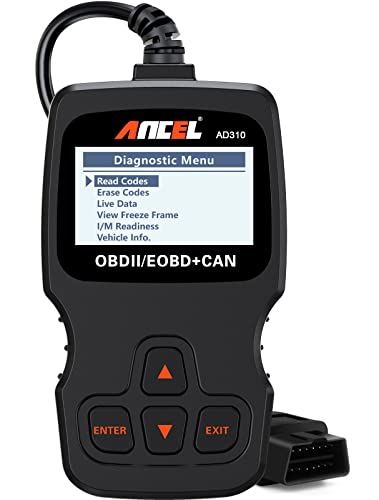What’s Going on Under the Hood? A Simple Guide to Car Scanning Tools

Ever had that moment of dread when the check engine light pops on? You’re not alone. It’s like your car’s way of saying, “Something’s up,” but with zero specifics. That’s where car scanning tools come in—and trust me, they’re a game-changer.
If you’ve ever wondered what these tools are, how they work, and whether you need one, let’s break it down in plain, everyday terms.
So, What Are Car Scanning Tools?
Think of car scanning tools as a translator between you and your car. Modern vehicles have onboard computers that monitor everything from engine performance to emissions. When something goes wrong, the car’s computer logs an error. A car scanning tool reads those logs and tells you what’s up—no guessing games needed.
The Different Types of Car Scanning Tools
Not all car scanners are created the same. Here’s the rundown:
- Basic Code Readers
These are the no-frills tools of the scanning world. They plug into your car’s OBD-II port (usually under the dashboard) and show you error codes. The downside? They don’t explain much, so you’ll need to Google those codes. But if you’re just starting out, these are cheap and easy to use. - OBD-II Scanners
These are like the basic readers but with more features. They can show you real-time data like engine temperature, fuel economy, and even how hard you’re hitting the gas. They’re a solid choice if you want a little more info without breaking the bank. - Bluetooth/Wi-Fi Adapters
If you’re all about tech, this one’s for you. These little gadgets connect to your phone or tablet via an app. Apps like Torque or Car Scanner let you see everything from your car’s RPM to its emissions data—all in real time. Bonus: you can save the data to track your car’s performance over time. - Pro-Level Scanners
Mechanics swear by these. They’re pricier and come with all the bells and whistles: access to specialized systems like airbags or transmissions, detailed reports, and advanced diagnostic features. Unless you’re running a garage or a hardcore DIYer, these might be overkill.
Why Bother with a Car Scanning Tool?
Let’s be real—no one likes unnecessary trips to the mechanic. A car scanner can:
- Save You Money: Did you know the average cost of getting your car scanned at a shop ranges from $50 to $500? That’s just for a diagnosis, not the repair! Having your own scanner lets you identify the problem yourself, so you can decide whether to tackle it on your own or go to a mechanic prepared.
- Give You Peace of Mind: Knowing what’s going on under the hood takes the stress out of seeing that dashboard light.
- Catch Problems Early: You can spot issues before they turn into expensive breakdowns.
Fix It Yourself or Go to the Pros?
Once you’ve used a scanner to identify the issue, you might realize it’s something simple, like a loose gas cap or a sensor replacement. These fixes are often easy to handle yourself and cost far less than what a shop might charge.
For bigger issues—like problems with your engine or transmission—at least you’ll walk into the auto shop armed with knowledge. Knowing the issue upfront can prevent unnecessary upselling or overcharges.
How to Pick the Right Scanner
Choosing the perfect car scanner doesn’t have to be complicated. Here’s what to keep in mind:
- What Do You Need It For? If you just want to clear a check engine light, go for a basic model. If you’re into data or serious repairs, aim higher.
- Is It Compatible? Not every scanner works with every car, so double-check compatibility with your vehicle.
- What’s Your Budget? Scanners range from $20 to $1,000+. Start with something affordable unless you know you’ll use the advanced features.
- Is It Easy to Use? Some scanners are straightforward, while others feel like they require an engineering degree. Pick one you’ll actually want to use.
Some Recommendations
If you’re looking to buy, here are a few popular options:
- Ancel AD310 Classic Enhanced Universal OBD II Scanner is an affordable, easy-to-use diagnostic tool that reads and clears error codes for most 1996 and newer vehicles.
- BlueDriver Bluetooth Pro: Super user-friendly and works with your phone—perfect for tech lovers.
- FOXWELL NT301: A great mid-range option that balances price and features.
Final Thoughts
Car scanning tools aren’t just for mechanics anymore. Whether you’re someone who loves working on cars or just wants to stop dreading the check engine light, these tools are worth it.
The next time your car throws a mystery alert your way, grab a scanner, plug it in, and take control. Whether you’re fixing the problem yourself or heading to the shop, you’ll save money, stress, and time



